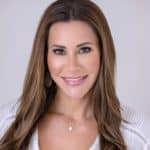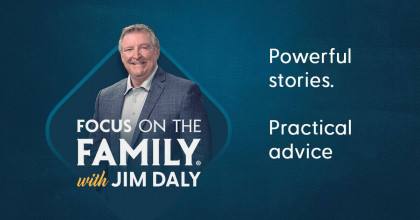Preview:
Man: So it’s been hard to see my mom decline in recent years. She, she lost the ability to communicate clearly. She couldn’t remember words or she’d just say something spontaneously, and we had no idea what she was talking about. It was hard to watch her decline this way.
End of Preview
John Fuller: Hmm. Well, that’s a tough journey for any family. And it may be that you or someone you know, has, or is right now experiencing that kind of tragedy of dementia. This is Focus on the Family with Jim Daly. I’m John Fuller, and we’re gonna be talking about that topic today on our episode.
Jim Daly: Uh, John, dealing with dementia has to be one of the more troubling issues that families face today, because the diagnosis is often a surprise and something that was not planned for, uh, even though the numbers are quite amazing. Dementia is the general term of deterioration in memory and thinking, behavioral processing, and the ability to kind of perform everyday tasks for yourself. It’s estimated that one in three, all right, 33%, uh, of adults will die with some form of dementia.
John: Mm-hmm.
Jim: And when you look at some of the other data that’s more than 6 million Americans are living with Alzheimer’s disease, uh, more than one in nine people, age 65 and older has some form of Alzheimer’s dementia. This is an issue, and this is why we have invited our guests to talk about how to, and from a Christian perspective, how to l- look at your parents who may be suffering in this way. And now what’s your obligation?
John: Yeah.
Jim: How do we do the caretaking at the end of life, um, ironically in the way that they provided at the beginning of our life?
John: Yeah. And Jim, uh, we were talking before we came into the studio, you and I both know a fair number of people, it seems, who are kind of in this spot of caring for particularly an elderly parent who is mentally, uh, and physically very frail and kind of slipping down the slope if you will.
Jim: No, that’s right. There’s probably more than one, but I know, uh, our CFO, Dan and his wife Sue, uh, one of their parents has suffered with dementia and just watching them go through that and the stories of repeating yourself again and again and again. I think one of the great pieces of advice that Dan mentioned that I will pass on is don’t fight or try to correct the question that keeps coming. “Now, tell me who you are again? You’re married to my daughter?” Just go with it and be patient with it.
John: Mm-hmm.
Jim: Don’t say, “Well, for the 14th time, mom…” You know. And I thought that was really insightful. Don’t fight with them about their loss of memory, just, um, move with it. And I thought that was loving and kind.
John: Well, and we’re gonna hear a, a lot of similar heart from our guest today, Sarah Smith, who has experienced these challenges, is experiencing them, uh, with her own mom. And her story is difficult, but it reveals how caring for a loved one with dementia can be a really powerful opportunity to serve in a Christ-like sacrificial way. And, uh, Sarah’s got a book called Broken Beauty: Piecing Together Lives Shattered by Early-Onset Alzheimer’s. And, uh, it’s a great book. It’s a memoir, and we’ll encourage you to get a copy of it today. Just stop by focusonthefamily.com/broadcast or call 800 the letter A and the word FAMILY.
Jim: Sarah, welcome to Focus on the Family.
Sarah Smith: Thank you so much for the-
Jim: Yeah.
Sarah: … opportunity to be here.
Jim: Well, it’s, it’s good to have you here, but it is a difficult topic and it’s-
Sarah: Yes.
Jim: … one that there’s not many resources really. Uh, I know that there are, uh, Alzheimer’s Association, others that provide information. But again, from a purely Christian perspective, how we should be managing this. There aren’t really, uh, many people talking about their experience, and I so appreciate that. Even the title of your book, Broken Beauty, beauty is the nickname of your mom.
Sarah: (laughs) yes.
Jim: Speak to her nickname, how she had, uh-
Sarah: Oh my goodness.
Jim: … got that nickname. And, and, uh, yeah, just speak about that.
Sarah: So, um, when I was pregnant with our firstborn and my older brother, um, his wife was pregnant with her firstborn, my parents were trying to come up with their, you know, grandma and grandpa name-
Jim: (laughs).
Sarah: … and my mom came up with the word beauty and we just thought she was crazy, but we thought it was so funny. We also didn’t really think it would happen (laughs).
Jim: (laughs) right.
Sarah: Um, and sure enough, she just loved the name Beauty because she didn’t wanna feel old. She didn’t wanna feel old and feeble. And yeah, as she got older, she wanted the kids to call her something that would make her feel, you know-
Jim: Yeah.
Sarah: … fun and just young again. And so she came up with that name. Um, it was really funny because when Frensley, our oldest began to speak, my mom would teach her, you know, to say Beauty and Frensley would repeat, “Booty.”
Jim: (laughs).
Sarah: She’d say, “No, no Beauty.”
Jim: That is the challenge with that word.
Sarah: I mean, I think grandchildren come up with the names most of the time. I know that she came up with, um, my father-in-law’s name, and it was totally different than what he wanted, but, um, my mom was, she was committed to get that name. So, um, they-
Jim: She was educating them.
Sarah: Yes, she was. That’s right.
Jim: That’s, that’s so funny. Talk about her personality, the type of person she was.
Sarah: Oh, mom was so much fun. She had a lot of energy. She has the passion and love for people. Um, loved to host things and throw parties and entertain. Didn’t love attention on herself, um, but certainly loved to, um, raise people up and encourage them.
Jim: Yeah.
Sarah: And, uh, she loved to dance. She was a Rangerette, Kilgore Rangerette.
Jim: Oh.
Sarah: So she was a big dancer. And when we had our children, and as they became toddlers and, you know-
Jim: She taught ’em some of that.
Sarah: … she was teaching ’em how to dance and do high kicks and-
Jim: (laughs).
Sarah: … uh, you know, headstands and all sorts of things. So she, so much fun.
Jim: And so much life.
Sarah: Yes.
Jim: And that really, as you outlined in the book, uh, when you began to notice a change. I mean, this is what’s so difficult in what I’ve even observed, you know, being friends with Dan and Sue, it’s almost like you’re not sure, like your mind’s playing a trick on you.
Sarah: Mm-hmm.
Jim: “Did she just say what I think she just said?”
Sarah: Sure.
Jim: Speak to that early moment when something was just a little off.
Sarah: Well, you know, when we would go home for the holidays, we noticed that she was a little more edgy.
Jim: Huh.
Sarah: Um, mom was a perfectionist. She liked things to be in order and, you know, things to be on time and organized, but we noticed that the smallest things would set her off. So with her personality, it began to change and she was just, um, got frustrated easily, a little more anxious. Uh, and then, you know, when I was home, when I first noticed a sign, you know, a physical sign, she had tingling in her fist and in her hand, and she kept rubbing it. And she told me that her arm had been numb and been tingling, and we were trying to tie Christmas bows on some gifts. And I asked her if she had seen a doctor, but my mom chose not to see a doctor.
Jim: She sounded like a tough cookie.
Sarah: That’s right. She’s very tough.
Jim: Yeah.
Sarah: I think she unfortunately did not trust doctors at the time.
Jim: Yeah.
Sarah: She had lost her immediate family and didn’t like hospitals and-
Jim: Yeah.
Sarah: … doctors. And so she tried to control things on her own, and…
Jim: Now your father has his grandpa name, Pops.
Sarah: Yeah. Pops.
Jim: Pops and Beauty. I like it. Or Pop.
Sarah: Yeah. Pops and Beauty. Uh-huh.
Jim: So you gotta be thinking about that, John (laughs).
John: I have given it a thought.
Sarah: Yeah. You gotta be thinking about it.
Jim: But I do want, I want to bring his perspective into this a little more so, because it sounded like from the tingling arm moment and your-
Sarah: Mm-hmm.
Jim: … concerns, and is that a neurological symptom of something-
Sarah: Right.
Jim: … bigger? That was all running through your mind.
Sarah: Right.
Jim: And, uh, there was, again, quite a, a bit of time that passed. What was your dad doing and did he eventually talk Beauty into getting to the doctor and, and how’d that all transpire?
Sarah: Um, Dad did eventually talk to my Mom into getting to a doctor. He had scheduled an appointment in Boston at a hospital there with a neurologist, but she canceled last minute.
Jim: Hmm.
Sarah: Just said there’s no way she was gonna go. So it was a whole nother, I, I believe it was a year, maybe longer, that he actually got her to go to a doctor in Houston. Dad tried so hard to get her to go, but he also, you know, lived with one who was very strong about how she felt and her feelings and again, going back to her stubborn personality, and she could really convince you that she was okay.
Jim: Mm-hmm.
Sarah: And listen, days would go, go by, weeks would go by where she seemed to function completely normal.
Jim: Right. Especially the early stages.
Sarah: Early stages. Mm-hmm.
Jim: I mean, that’s again the time you’re going, “What… Did I just see that? What…”
Sarah: Yeah. So I think that was with my dad. He, he would see things, but then he’d kind of blow it off and she’d convinced him she’s okay. And before you know it, you’re living in it and you’re, you become a little more blind to what’s going on. And then you get in this, I, I believe my dad started protecting her and not even realizing how much he was protecting her or speaking for her, filling in the blanks.
Jim: And so she does get to the doctor-
Sarah: Mm-hmm.
Jim: … the diagnosis is done. How did your dad inform you about that?
Sarah: Well, unfortunately, he told me that he could not reveal the diagnosis. He said that he wanted to honor and respect her wishes, and she did not want any of us to know. I think they needed time to process the diagnosis and also to talk about how they were going to handle it. They also knew that we had our own young family, and my dad is just so sweet. He did not wanna burden us with heavy news of a terminal diagnosis. So I think he was also protecting us, his children-
Jim: Mm-hmm.
Sarah: … from feeling heavy and burdened with this disease.
Jim: Which is really sweet. Uh, that unfolded however, and, uh-
Sarah: Backfired (laughs), a little bit.
Jim: … well, but over time, then he became the caregiver.
Sarah: Mm-hmm. Yes.
Jim: He was the one providing that and trying to do it all. Boy, that’s a generational thing too. I could see that.
Sarah: I agree. Yeah.
Jim: And I, you know, it’s admirable. But, you know, one of the, I think one of the unfortunate things with those that are older than us, uh, they did keep a lot inside.
Sarah: Yes.
Jim: Kind of that World War II generation-
John: Yeah.
Jim: … that attitude of, you know, “I’m just gonna get tough.” And, you know, there’s maybe some virtue in that. But I think in this moment, one of the things you so clearly talk about in Broken Beauty is the need for vulnerability.
Sarah: Yes.
Jim: You know, the need to be open so that help can be provided. But describe your dad’s journey once it started to deteriorate.
Sarah: My dad, uh, really was breaking down. Um, I, I saw him aging. Uh, you know, I was living in Dallas at the time when she was diagnosed. They were in Houston for several years before he finally moved her to Dallas, closer to family. My mom still had a sister and a brother that was alive. And then they passed away. So she had no immediate family left. And when her brother passed away, she truly crashed.
Jim: Right.
Sarah: And the deterioration in her brain, my dad, strongly believes, is what really progressed this disease to a whole new level. When he was going through it, he called me and just said, you know, friends were treating them differently.
Jim: Uh-huh.
Sarah: They don’t know how to help. They don’t know what to say. That’s part of the reason. They also did not want to tell anyone. She was very involved with her church. She still wanted to go to Bible study, but dad began filling out her questions in her-
John: Right. Mm-hmm.
Sarah: … Bible study book.
Jim: And that official diagnosis was?
Sarah: Early onset Alzheimer’s disease.
Jim: Yeah. And she was how old when that came about?
Sarah: She was 67. But that was because we could not get her to a doctor for at least three or four years and they could tell by the, the CT scans and that she had had it much earlier on.
John: Hmm. Our guest today on Focus on the Family with Jim Daly is Sarah Smith. And we’re hearing about her family story. Uh, she’s captured that in her book, Broken Beauty: Piecing Together Lives Shattered by Early-Onset Alzheimer’s. Get a copy today when you call 800 the letter A and the word FAMILY. Uh, or you can stop by focusonthefamily.com/broadcast.
Jim: Uh, you have some powerful stories, uh, one that’s cute, one that’s a little more maybe hurtful. And it does show the power of the relationship and when it deteriorates how you manage this emotionally. One is your mom, I think began to accuse you of never spending time with her-
Sarah: Yeah.
Jim: … because she couldn’t remember.
Sarah: Short-term memory, it, it imposes a big problem for the caregiver, the loved ones. We spent so much time together. Once they moved to Dallas, we were doing carpool lines and going to Starbucks and lunch, shopping together. I would spend hours with her. And it was so wonderful for me because I also knew that I was giving my dad rest and he could get out, maybe go hit some golf balls-
Jim: Yeah.
Sarah: … and just take a break. So for me, it was such a gift and a blessing to be with her. And I wanted to savor my time with her. She would not remember after I would drop her off from a three or four hour day that we had just spent the whole day together.
Jim: Right.
Sarah: And there was a, a time when dad had to get her out ’cause she couldn’t sit still, and they would drive around and I was walking down my sidewalk and they were driving by my house and she rolled the window down, and I went, “Hey, what are y’all doing here?” And my dad was giving me this look like, “I am so sorry.”
Jim: Yeah.
Sarah: He was just shaking his head. And she had this, this look over her face that I, I just, I knew it was not her, it was the disease.
Jim: Yeah.
Sarah: I, I knew it was not my mom. And she just said, “We’re, we’re moving back to Houston. We’re going home.”
Jim: Yeah.
Sarah: “I’m not gonna be here anymore. You never see me. You never call me. I don’t even know why we’re here.”
Jim: Mm-hmm. Right.
Sarah: And, you know, you mentioned early, it was one of those moments where I, where I was struggling with, “I was just with you.”
Jim: Yeah.
Sarah: “We just…” You know, you’re trying to be logical (laughs) with someone who has no logic and they can’t understand or process time. Their short term memory is gone. And it was extremely hurtful.
Jim: Yeah. Well, that’s, that’s part of the issue is how, how do you manage that? And I, I want to bring in the faith component obviously as a believer in Christ.
Sarah: Mm-hmm.
Jim: How do you begin to settle your own heart? One of the things that I’ve observed about our friends, uh, and not Dan and Sue in that case, but others that we know that have gone through this, is that it’s easy to become frustrated.
Sarah: Mm-hmm.
Jim: You know, like your dad-
Sarah: Yeah. Yes.
Jim: … if I could say that, you know, he is shaking his head be- and slightly embarrassed-
Sarah: Yes. Sure.
Jim: … as you described it. That’s exactly the point. We can also get edgy-
Sarah: Mm-hmm.
Jim: … you know, that, “Mom, I’ve just told you that.”
Sarah: Mm-hmm.
Jim: And it, it’s so fruitless because that’s not, that’s not what’s going on there. It’s not that she’s intentionally trying to irritate you.
Sarah: Right.
Jim: And how, how did your faith help you cope with I think several levels? One, this is life given in the image of God, and it’s my responsibility as her daughter to now care for her. That’s massive-
Sarah: Yeah.
Jim: … and very counter-cultural by the way.
Sarah: Right.
Jim: Because I think a lot of times it’s, “Let’s tuck mom away and-”
Sarah: Yeah.
Jim: “… you know, maybe we’ll see her at Christmas.”
Sarah: She won’t remember me. So why go?
Jim: So this is a massive question I’m asking you. So one, part one is that, just how your faith informed your attitude toward her. So let’s start there and then I’ll continue.
Sarah: So I spent a lot of time with the Lord. I was up every morning, 5:30 in the morning and, doing devotionals and praying. And especially after that moment when she wanted to move home. And I realized that she just has no idea how much time we spent together. I fel- I fell on my knees and I cried out to God. And I just realized the Lord is waiting for me to cry out to Him. He wants to heal my broken heart. He wants to help me through this trial and this suffering. And I came across the verse, Romans 12:2, which stuck with me. This was a big verse through my journey is, “Do not be conformed to this world, but be transformed by the renewal of your mind. So that by testing you may discern the will of God, what’s good, acceptable, and perfect.”
It takes a lot of discipline to renew your mind. And I think there were weeks that every hour I was praying Romans 12:2, and over time, the Lord began to transform my heart and my mind. And I wasn’t being conformed to fear and frustration and anger. And I was able to discern how to respond. You know, we teach our kids to be slow to speak, quick to listen. And when you’re going through this, you’re quick to speak and respond. And you really do need the power of the Holy Spirit and His fruits to help you be slow to speak, quick to listen, and to be able to pour out His love and see your loved one through His lens.
Jim: Right.
Sarah: And spending time with God just changed my spiritual walk and my spiritual life.
Jim: It sounded like it matured you in the faith.
Sarah: It absolutely did. Yes.
Jim: Which think of the irony of that, you know, through the trauma. And of course you don’t want anybody around you to suffer so you can be more deeply spiritual. That’s not the point at all. But it is Romans 8:28, which is, “All things work for good,” right?
Sarah: Right.
Jim: “To those who love the Lord and are called by His name.”
Sarah: Mm-hmm.
Jim: So if you can look at it through that lens of, “Lord, what do you want to teach me in this moment?”
Sarah: Right. Mm-hmm.
Jim: Uh, I do want to, uh, touch on something that’s so critical because people that perhaps are on the brink of going into this journey, you know, they’re listening, going, “I don’t know if this really applies to me.” Well, again, one in three over 65 are gonna have some form of dementia.
Sarah: Mm-hmm.
Jim: So it’s, uh, it’s a high probability that you’re gonna experience it. Um, your dad’s protection of your family. That initial, um, desire he had, and then of course his vulnerability, said, “I can’t do it on my own anymore.” He, there was some wisdom in that because, uh, you, in that position of having young kids and having a declining parent, you’re being pulled in both directions. Of course, you have your husband Thad-
Sarah: Mm-hmm.
Jim: … who’s, you know, he’s trying to be supportive, I’m sure. Speak to the marital stress that can come from that. And, and as a woman particularly, just, you know, ’cause women give so much in their family.
Sarah: Yeah.
Jim: How did you not manage, or how did you manage or learn to manage all the people pulling on you?
Sarah: It was really hard, and it chokes me up thinking about it. You wear a lot of hats. And I mentioned that in my book. You know, you, you’re taking care of your children, you’re supporting your husband. You wanna be there for your parents. You’ve got, you know, sports and carpools to drive, and you want to pour into friendships. So many things are trying to steal your time. And I really, um, with my dad, we grew so close during this time. And for Thad to observe a father-daughter relationship, he said to me that he just loved watching, um, our relationship because we had two daughters of our own. And for him, it was teaching him and giving him wisdom on how to have a loving relationship with his own two daughters.
Jim: Huh.
Sarah: He was so supportive of me taking care of my parents. The stress, it was very difficult. Um, you know, Thad, thankfully had a job where he does not travel. And, um, but I needed him to, to do a lot of things. And it was very, very stressful in the beginning, but I have to say his love for the Lord and a trial that we went through early on in our marriage already prepared us for this.
Jim: Yes.
Sarah: And Thad is 12 years sober. He was an alcoholic. And in the early years of our marriage, we learned a lot about alcoholism. And God equipped us through all of our counseling, how to, um, carry each other’s burdens.
Jim: Yeah.
Sarah: And I remember our counselor saying to me, “Sarah, are you willing to carry this burden for Thad? Because one day he’s gonna need to carry a burden for you.” And Thad and I reminded each other of that, and he said to me, “I’m here to help carry a burden for you.”
Jim: Wow.
Sarah: And while it was very stressful for me, because I had so much guilt for not being emotionally and mentally there for our children, you know, for what I felt would be a hundred percent there, Thad was, and he took that from me.
Jim: It, it is a, a beautiful picture of how family should function really. And I think that’s the point. And when I look at it, I’m so grateful of your reliance on scripture and, you know, you can go in so many emotional directions there-
Sarah: Right.
Jim: … and I think you’ve done a beautiful job kind of describing your journey.
John: Mm-hmm.
Jim: And it’s such a, uh, insight on how we should respond to the moment.
Sarah: Mm-hmm.
Jim: And I, I want to make sure we get in how you are working, uh, with a ministry now, how you’re doing this to help the elderly. Describe that.
Sarah: Well, through this journey, uh, when mom was in memory care and the first time I was able to go visit her, and it was a long process, I had to wait about six weeks. But as I sat there and, and looked at her and saw a quick decline, she had been on medications. They had to use a topical gel to keep her calm. It was a very difficult placement. But as I began to go visit her, I looked around and could see other residents there who loved seeing a new face come in. And the first time we brought our daughters there ch- and, and Elijah, our children, the residents loved being around these kids. And they were so excited.
And for, to watch our children show up, fearful and not sure if they should hug someone or touch someone they don’t know what to do, to watch them overcome and go through this breakthrough of, now I am going to love on this person who’s sick, this elderly person, it was such a blessing and an eyeopener for me that there’s a ministry opportunity.
Jim: Oh, yeah.
Sarah: And at the time, our girls were in a private school or in a, and you know, they do a grandparents’ day and for Thanksgiving.
Jim: Uh-huh.
Sarah: And they memorize scripture, hymns and they sing it, perform for Thanksgiving. And I had asked some of the moms if their daughters would be interested in coming. And it was kind of a rehearsal for them, but it was an opportunity to love on the residents. And that began this awesome gift of seeing how the residents would react to children singing and people showing up. You mentioned earlier that, you know, there, there are a lot of people that are there who don’t have family or they don’t have visitors.
Jim: Oh, yeah.
Sarah: And it’s really heartbreaking. And you see that they need, they need someone, they need someone to love on them, even if they can’t remember.
Jim: Yeah.
Sarah: It fills them up with joy in their heart that can last the rest of the day and they may not even know why.
Jim: Wow. I mean, that is such a powerful story about showing unconditional love to someone who is incapable at times of responding. And what a witness for all of us about considering the needs of others, especially those who are elderly, who may need some extra help, or, uh, at least a friend who will come visit them now and then. Um, I’m not trying to lay a guilt trip on anyone, but Sarah’s example and her story is a good reminder that God, uh, puts us into community, uh, so that we can express our faith, so that we can help meet the needs of others, that that’s what we’re called to as Christians, and that’s why Focus on the Family is here. And that’s why we do what we do every day, to strengthen families, support marriages, save preborn babies, and so much more. And I wanna encourage you to think about and pray about what role God has for you and your family to serve others and be a tangible witness of God’s love.
John: And one way I might suggest you do that is by supporting Focus on the Family, uh, by Jim, as you’ve said before, doing ministry through us. Uh, donate today, uh, either a monthly pledge or a one-time gift. That, uh, donation makes it possible for us to produce programs like this, provide counseling services and offer helpful resources like Sarah Smith’s book, Broken Beauty.
Jim: And John, we don’t talk about it a lot, but we’re reaching every week, uh, five to 6 million people between broadcasts, podcasts, and that’s a big reach.
John: Mm-hmm.
Jim: And so many people are hearing this very message today. And it gets accomplished because people support the ministry and they’re in with us to touch lives. And we can give more families hope with the good news message of Jesus Christ right now, with your help. And thanks to the generosity of some friends, uh, we have a matching opportunity. It’s a fun way to just spur on the giving. And your $25 gift will become $50, $50, a hundred. And again, it’s just their way of helping us meet that budget need so we can do more. Lemme say thank you in advance for your generosity, whether you are a monthly pleasure or a one-time giver, both are great. And in response, we’ll send you a copy of Sarah’s book as our way saying thank you.
John: And you can donate double your gift and request Sarah’s book when you call 800 the letter A and the word FAMILY, 800-232-6459, or of course, online, we’re at focusonthefamily.com/broadcast. We’ll plan now to join us tomorrow. We’re gonna have a fun conversation, Jim and Jean Daly and Greg and Erin Smalley talking about ways that you and your spouse can grow closer together in marriage.
Greg Smalley: Well, we see a lot of couples that we talk to work with, they end up administrating their marriage almost to death.
Erin Smalley: Mm-hmm.
Greg: Like instead of nurturing, right?
Erin: Mm-hmm.
Greg: They’re just, they’re having like a perpetual business meeting.
Erin: Yeah. And no one gets married to have a perpetual business meeting.




















